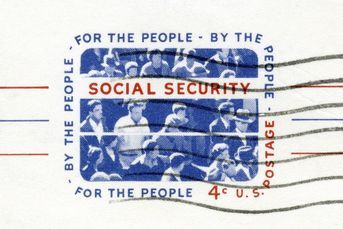Some plan sponsors may need a nudge about HSA rollovers

Multiple accounts at previous employers diminishes the feasibility of these accounts
The lineup of ways workers can save for retirement has expanded in recent years, with health savings accounts now looked upon as retirement savings vehicles along with 401(k) plans. But a recent survey suggests companies aren’t doing a good job when it comes to helping employees roll over their HSA savings when they start a new job, a shortfall that could limit the benefits the accounts provide.
Health savings accounts aren’t for everyone. To contribute to an HSA, a worker must be enrolled in a high-deductible health plan. And annual contributions are capped at lower levels than those for 401(k)s. This year, single people can contribute up to $3,500 to an account and someone with family health coverage can put in up to $7,000.
But workers who use an HSA get a triple tax advantage for doing so: Contributions can be made on a pre-tax basis, the interest/gains earned are tax-free, and money can be withdrawn without owing taxes as long as it is spent on qualified medical expenses.
Over time, because of those tax advantages, HSAs have come to be seen as a vehicle for saving for health-care costs in retirement. Advisers encourage clients to try to cover their current medical expenses without tapping their HSAs, so they can let the money in the account accumulate and then use it during retirement, when health-care costs tend to be high.
More and more employees are taking advantage of this opportunity. At the end of 2018, there were 25 million health savings accounts, up 13% from the end of 2017, according to Devenir Research, and those accounts held $53.8 billion in assets, up 19% from the prior year. Devenir expects HSA assets to grow to $75 billion by the end of 2020.
A survey of companies that offer HSAs by the Plan Sponsor Council of America pointed to a potential glitch in the scenario of HSAs as a retirement savings solution, though of the 189 companies offering HSAs that participated in the survey, just 19% ask new employees whether they want to roll an HSA from a previous job into the company’s plan.
That omission on the part of employers could leave workers with multiple, smaller HSAs scattered at companies where they worked previously, instead of having a single account with their accumulated savings. That in turn could hamper workers’ ability to invest their HSA savings.
According to the PSCA survey, while 85.6% of the companies surveyed offer investment options for workers’ HSAs, 33% require that workers have a minimum of $1,000 in the account to invest the money, and 43% have a minimum that’s higher than $1,000. Multiple smaller accounts are much likelier to be sitting there like a bump on a log or earning paltry yields, rather than growing by being invested in the markets.
There’s also the risk that workers will end up forgetting all about small accounts they left behind at previous employers. And HSAs that still reside under the roof of the accountholder’s previous employer are much likelier to be eroded by administrative fees. Roughly 60% of the companies that PSCA surveyed said they pay such fees for current employees, but only 5% pay administrative fees for former workers.
Given the many deficiencies in Americans’ retirement readiness, the ability to use HSAs as a long-term savings vehicle is a real plus.
To ensure that the accounts function properly, advisers who work with plan sponsors should encourage them to establish procedures around HSA rollovers. They shouldn’t just talk to new hires about bringing along their 401(k) assets from the last job; they should help them deal with their HSA savings as well. Advisers should also remind their retail clients not to lose track of HSAs from previous jobs.
Learn more about reprints and licensing for this article.








